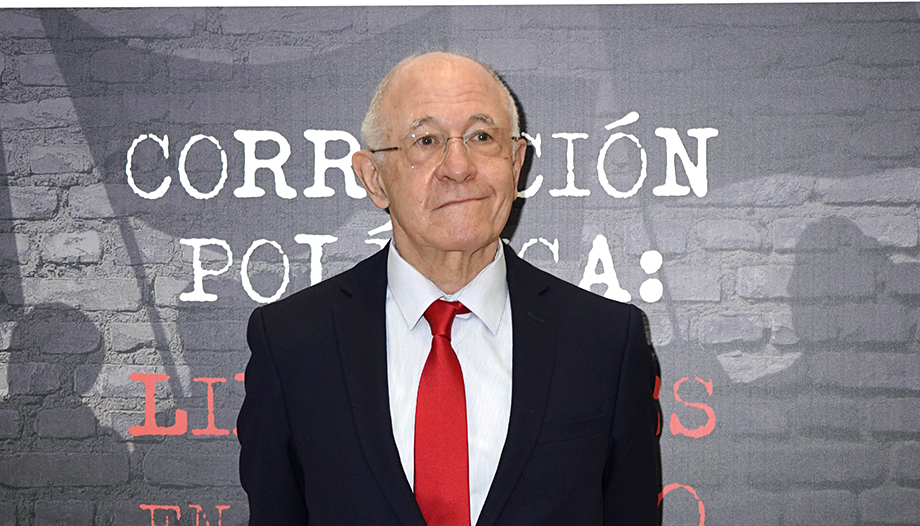One of the phenomena of our times is cancellation, that is, the removal of people, facts, events or cultures from cultural circulation and public opinion according to certain parameters. "What is at stake here is not just the specific problem of Western culture. More broadly, it is about our relationship to the past."said the French thinker Rémi Brague at the congress organized by the Catholic Association of Propagandists (ACdP) and the CEU, in a presentation entitled The culture of cancellation or the cancellation of culture?
"In particular, we have to ask ourselves what kind of attitude we should adopt towards what we are the product of: to begin with, towards our parents, our country and our language, among others, and to go all the way back to the 'warm little pond' where Darwin imagined that life had arisen, and even further back: to the Big Bang. We must choose between forgiveness and condemnation".added the French humanist.
According to their analysis, "the past is replete with good deeds, but it is marred by a multitude of horrifying acts that we remember more easily. Traumas remain in the memory, while we too easily take for granted that which is pleasurable, as if instead of being a gift it were something deserved.".
"Authentic creation never severs the link with the past."He pointed out, citing the example of Latin. "In an extremely interesting passage in his work. SpeechesMachiavelli notes that Christianity could not completely suffocate the memories of the previous religion because it had to maintain Latin, the language of the Roman State that persecuted the believers, in order to propagate the new faith"..
In any case, the philosopher continued, "Our present culture is trapped in a kind of perversion of the sacrament of penance: we have confessions everywhere and we want others to confess and repent. However, there is no absolution, there is no forgiveness, so there is neither the hope of a new life nor the will to take it in hand. May we recover our capacity to forgive".said Rémi Brague, who was awarded the Ratzinger Prize in 2012.
Greek and Latin authors
At one point during his presentation, the French thinker mentioned that "a young professor of Classics at Princeton, Dan-el Padilla Peralta, recently made an appeal in which he took a stand against the study of Greek and Latin authors for encouraging racism. First, because references to classical antiquity are sometimes wielded as weapons in favor of white supremacism. Secondly, and more importantly, because the ancient world relied in part on slave labor as an infrastructure on which to build its culture.".
"As a Christian I am."said Brague, "I do not look favorably upon this type of social system and wish for its disappearance. Moreover, I am pleased to note that slavery lost its legitimacy thanks to the revolution in thought brought about by the new faith. If I may allude once again to the hackneyed opposition between the two benchmarks of Western culture, Jerusalem did more justice to the radical equality of all human beings than Athens.".
In this dilemma between forgiving or condemning, the French thinker also formulated other reflections. For example, that "Condemnation is a satanic stance. Satanism can be relatively mild, and all the more efficient. According to Satan, everything that exists is guilty and must disappear. These are the words that Goethe puts in the mouth of his Mephistopheles (Alles was entsteht, / ist wert, daß es zugrunde geht)".
However, "forgiveness is not an easy task".he added. "How can we give our approval to what preceded us [...] "The past of mankind is marked by conflicts and wars?". "Only cultures that do not exist and purely imaginary can be totally innocent.".
Rémi Brague considers that "it is always easier to destroy than to create something from nothing."something that should teach us to"show a certain prudence. When we touch what previous generations have built, we should do so with trembling hands. Only Stalin claimed that his pulse would not tremble when he decided to carry out a purge and send people to the wall.".
Freedoms at risk
Precisely in the denial of the transcendent dimension of man lies "the root of modern totalitarianism"that by trying to eliminate that which makes mankind "natural subject of rights, puts freedoms at risk".The Vatican Nuncio, Mons. Bernardito Auza, said at the Congress.
For his part, the president of the ACdP and the CEU, Alfonso Bullón de Mendoza, thinks that the culture of cancellation is shown in measures such as the recent penal reform which can lead to prison sentences for participants in information and prayer groups that meet in front of centers where abortions are performed.











